From the Lebrecht Album of the Week:
There’s a debate going on among agents as to whether it is better for an artist to have an exclusive record contract or to work across several labels. Alisa Weilerstein, who has made outstanding recordings of the Elgar, Dvorak and Shostakovich concertos for Decca, has now popped up on a Dutch label with the two Haydn concertos and Schoenberg’s Transfigured Night. Pentatone is a terrific label, run by former Philips professionals. This ought to be a top-drawer recommendation. Why it isn’t is a matter of some perplexity….
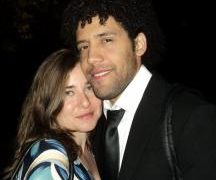
Read on here.
And here.
The MUK – Musik und Kunst Privatuniversität der Stadt Wien – has approinted Jennifer Stumm as its next professor of viola, starting September.
Jennifer, a Curtis grad, is from Atlanta, Georgia. She runs an Illumina collective in Sao Paulo, Brazil.
Vienna is lucky to have her.

David Chambers, Vice President for Development at the Chicago Symphony Orchestra for the past 10 months, yesterday joined the San Francisco Symphony as Chief Revenue and Advancement Officer.
That same afternoon, Philip Koester – Chicago’s Vice President for Sales and Marketing – joined the LA Phil as Vice President of Marketing and Communications.
Make of that what you will.
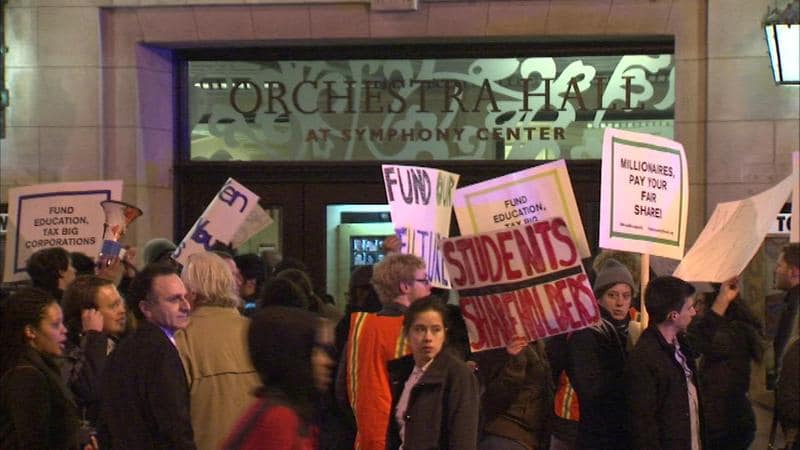
The Bavarian Ministry of Science confirmed today that it is looking into a third likely perpetrator of sexual abuse in the music academy.
The first – former president of the Munich Academy of Music and Performing Arts, Siegfried Mauser – has been sentenced to two years and nine months for sexual assault.
The second – a suspended professor of composition – has been charged with several counts of rape.
The identity of the third suspect is not yet known.

PiotrBeczala is one of the best selfie-takers in the business. Director Yuval Sharon was quick to get in on the act.
Can anyone name the others?

photo: Tomasz Konieczny
Sonya Knussen tells us:
The Tanglewood Music Center is celebrating OK’s life every week at the moment with a faculty performance of a Knussen chamber work at the 10am Sunday Morning Chamber Music Concerts and a performance of “Songs and a Sea Interlude” at the TMCO FCM concert on July 30th at 8pm conducted by Stefan Asbury. My parents met at Tanglewood.
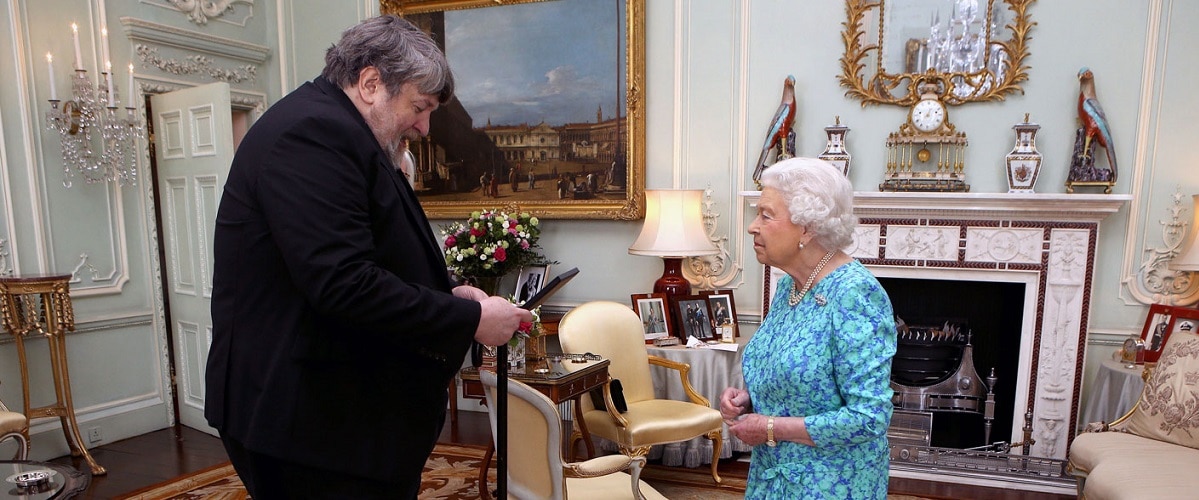
The violinist Zeneba Bowers has gone public in the Washington Post today with an account of her experience of alleged sexual assault by the Cleveland concertmaster, William Preucil. In an additional reflection for her friends (and Slipped Disc), Zeneba decides that she has left some important things unsaid:
Thanks to Anne Midgette and Peggy McGlone at the Washington Post who wrote a very important article about the MeToo movement in the classical world. This post is just to add a little further detail for those that are interested. I’m adding in a few notes about the music business since many of my friends are not in the biz.
1. New World Symphony is an elite orchestral academy whose goal is to place its students in leadership positions in orchestras around the world. Concertmasters from top orchestras were brought in to teach us private lessons. When NWS posted the sign-up sheet for lessons, I’d make a beeline to it and I’d always take the last lesson of the day. That way I could get extra time if the lesson wanted to go long, and if I felt I had a rapport with the teacher, I would always ask them if I could take them out for a coffee or beer afterward. I used to keep a yellow legal pad. As things happened in rehearsal (conflicts between principal players, concertmaster/conductor relations, etc.), I’d record them on my yellow legal pad. Then at one of these coffee or beer summits I’d ask my questions (e.g. “How would you handle this?” Or “What’s standard protocol for this?” It was part of my effort to educate myself, as I hoped to be in a leadership position myself someday, and virtually none of the “rules” are actually written down. I went to several coffee/beer summits with several concertmasters without incident. All but one were male.
2. My lesson with Preucil was at 4pm. I remember that little detail because I remember being concerned about the appearance, but I thought that a 5pm drink was not a big deal. Right outside the hall is a large pedestrian zone full of cafes and bars. It was broad daylight and there were thousands of people around. The last lesson of the day was always 4pm, and as I mentioned above, I always tried to snag it.
We walked a couple of blocks down the pedestrian zone and stopped at one of the many cafes. I think it was a whiskey bar but I wasn’t a whiskey drinker at the time. I don’t remember what drink I had but it was probably a glass of wine. (I know it was alcohol; so if that is a judgement issue for you, go ahead and start chalking up your black marks now.)
I went through my legal pad questions; in my memory we had a good time. He is an affable guy and easy to talk to. His hotel was at the end of the pedestrian zone, and my apartment was a few blocks past that, so we walked together. About two blocks past the bar, he stopped dead in the street, and started panicking; he had left his Stradivarius at the bar.
He started running and I ran with him. We got to the bar sweated and panicked, but there it was, tucked by a chair. We were both extremely relieved and shared a moment in the street, laughing and trying to catch our breath. He begged me not to tell anyone. Of course I agreed. This was the “good” kind of way a man in power asks a subordinate not to tell anyone about an incident: No one was harmed, but had it become public knowledge that he left a priceless work of art sitting in a whiskey bar in Miami it would have really damaged his reputation. I felt like we now had a little secret and I was happy to keep it for him. I’d had a great violin lesson, we had had a good time going over my work questions, and now this funny thing happened, and I thought the day was a success. We kept walking down the pedestrian zone and as we got within sight of his hotel he asked if I would like to have a cigar with him. “My ticket to the boy’s club!”, I thought. It was still daylight out. I felt safe. It was not until I got in to the room that I saw there was no balcony, and there would be no cigars.
Note: I did not give him my phone number. As I ran home panicked and crying after the incident, he must have called the front desk at NWS housing to get my number. My phone was ringing as I walked in the door. There was no caller ID in those days so I picked it up.
3. Obviously the most disturbing part of this type of incident is the physical violation of your body. But one aspect of this that is so overlooked is the impact that something like this has on your career.
Networking is vital to our little music business. A mentor or teacher can see you on stage and see you have the chops for the job, but they will know several dozen just like you. Often the thing that sets you apart is a personal connection, however small. That can be the difference between you getting a chamber music opportunity, or a substitute gig on an orchestra tour, or even a one-year contract in an orchestra (which can lead to a full-time, tenured gig.) It’s no accident that we don’t have equal representation of women and men in leadership positions in the music world. If we do network, and something like this happens, then plenty of people ask “Why were you going out with him” or “What did you think would happen”. (For reference, just see any comment stream on this article.) If we don’t network, then we are cut off from all the opportunities (and they are vast) that occur because of networking.
After this incident, which I have only recently begun to be able to call an attempted rape (because it was, but I feel sick even typing it out), I realized that a lot of my opportunities would be cut off. The 18 years I had invested to that point in my life studying this instrument and attending elite schools already had a hard stop on any progress I could make because I’d made a powerful enemy, and any audition I took to get in to any of the places he worked would be a futile waste.
I realized that in all likelihood, there were many like him in the business, and this would happen again and again; and I despaired. I realized that I would have to create my own opportunities, if I wanted to perform music and know that I would be safe. I have attempted to do that in my career.
I am very grateful to the Washington Post for writing this story. Obviously they couldn’t include this amount of detail or the story would have been the entire paper, but I think the work they did was excellent. And I don’t just mean this article, but also the respectful way they have treated me over the last 6 months.
I was unable to read the article before it went to print; that’s how real newspapers work. I read the article when I landed in Atlanta after flying in from Milan, sweaty and stressed and exhausted. Over the years, in the course of my career, I have been misquoted dozens of times, and I had a decent amount of stress about this article since I would have no chance to see it before the world did. But I put my trust in the professionalism of the writers, and I’m glad I did.

The Mark Allen Group, which bought Gramophone for a proverbial shilling in 2013, has today taken over all the assets of the Rhinegold stable.
These include such titles as Classical Music magazine, Opera Now, Music Teacher and International Piano.
Let’s see if they can kick some life into a suffering print-mag field.
The news has yet to be announced on the Rhinegold website.
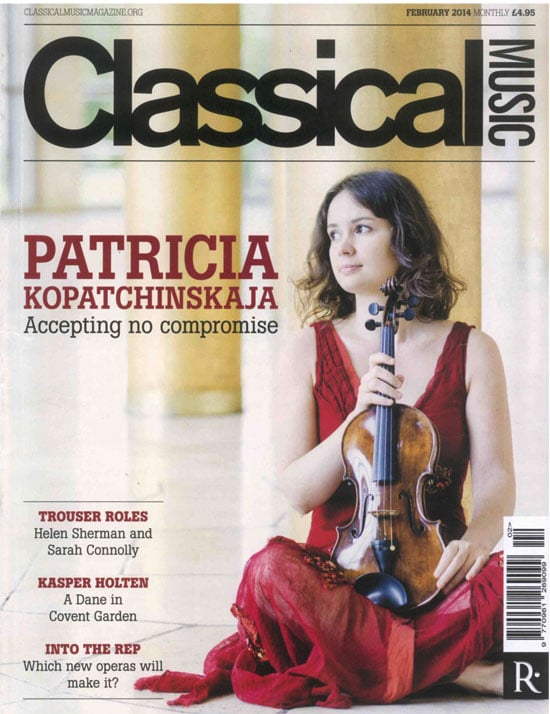
The conductor Omer Meir Wellber, 36, has been named music director of the Fondazione Teatro Massimo in Palermo from 2020.
He is presently conducting Verdi’s Les Vêpres siciliennes at the Munich Opera Festival and will become principal guest conductor at the Semperoper Dresden in September.
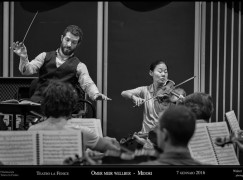
The combative Michael Volpe (also known as @NoisyMV), head of Holland Park Opera, has a weakness for neglected works by neo-realists of the late 19th century, especially Pietro Mascagni whose operas he has been bringing back, one by one.
Not all of them have gripped. In 2016 I wasn’t sure I’d survive Iris, a seedy summer tale of rape, brothels and suicide. My companion took flight in the interval. Last ears was Zaza.
This summer, most London critics lost patience with Isabeau, the tale of a princess whose father makes her ride naked through the town. ‘An embarrassing and misshapen dud,’ was the verdict of my Spectator colleague, Richard Bratby. ‘Clichés, codswallop and passionate music,’ was the FT’s headline.
Since the conductor is a pal, and the production is coming next year to New York City Opera, I decided to catch one of the later shows, no easy feat since the entire run was sold out, despite bad reviews. I went on the hottest night London had sweated for 32 years.
Is Isabeau a masterpiece? By no means. There are too many holes in the flimsy plot and too much patchwork in the music, with pages of orchestration sounding like they had been lifted from Strauss, Elgar and, in one intermezzo, Sibelius. These deficiencies aside, the show is redeemed by an ingenious set and pinpoint direction by Martin-Lloyd-Evans. My heart was melted by Anne Sophie Duprels in the title role and by David Butt Philip her heroic lover, Folco. Francesco Ciluffo conducted with an imposing intensity.
The two hours passed very fast. Mascagni, no genius, knew how to sing on a summer’s night. I’m still whistling the intermezzo.
The final score was verismo 1, critics 0.

Classicalmusicnews.ru reports a second round of sackings at the famed Rimsky-Korsakov Conservatoire – 49 jobs are to go in all parts of the institution.
Last summer, the conservatoire dismissed 79 artists of its opera and ballet theatre.

From our string quartet diarist Anthea Kreston:
Today, I was practicing with my six year old daughter, using my iPad Pro, with scanned music from home. On the top right hand corner of Portnoff Russian Fantasia #2, I can see the old-fashioned, looping cursive handwriting – Dr. Milton Goldberg, my first serious teacher. He passed in 2002, and I was fortunate enough to be remembered by him well enough to find myself with several boxes of his music library, which somehow made their way to me in Philadelphia when I was studying to get my music degree. Funny editions, heavily edited by hand with his specific language and unique markings and extra flourishes, and with the consistency of an Indian Papadam – if bent slightly past flat, an audible snap and the music cracks in half. The spines have strings coming out, must be stored lying down, and everything has a slightly musty smell.
As a four year old, Dr. Goldberg seemed impossibly old. I couldn’t tell the difference between his wife and mother, who shared his house, and who both were built formidably. Their hair was always covered by a Russian scarf, they walked by swinging their legs from the hip, and they would be bustling about, wiping hands on their aprons, with strange, strong exotic smells wafting into the teaching room which doubled as the eating area after lessons were complete.
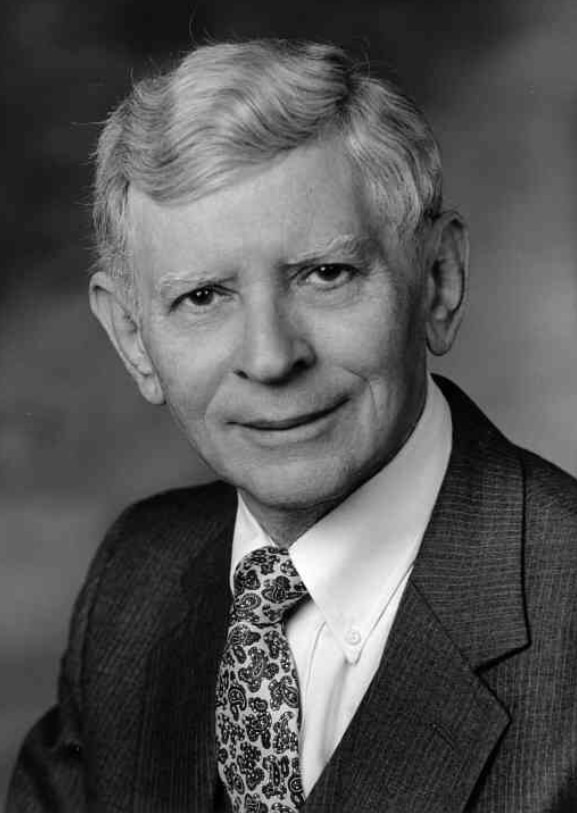
He came from a Russian/Lithuanian family who had run a small general store in Chicago, and walked with a noticeable limp, a legacy of polio. He spent much of his childhood bedridden, listening to music, and it became clear that music would be a suitable career. He went on to teach band and orchestra in the public schools, but he never tired of furthering himself – earning a Doctorate, warming up with Paganini Caprices and Vieuxtemps (he was famous for his 4th of July performances in our town parade, where he would play the impossibly difficult „Yankee-Doodle“ variations with flags sticking out of his outfit). Every year, before our summer break, he would allow me to ride once up and down his stairway chair – a terribly slow ride, but travelling sideways up a staircase and getting a glimpse into the privacy of their second floor was something I looked forward to all year.
I knew him only for four years, from 1976-1980, when he lovingly and patiently transitioned me from my Suzuki teacher to my next adventure as a student of Roland and Almita Vamos, teachers of Hungarian and Ukrainian descent. Dr. Goldberg taught from Wohlfahrt, Sevcik and Introducing The Positions – that incredibly tedious, dark and light red-covered book. He was patient and kind, thoughtful and quiet, and exacting. There were no stickers or practice charts. There was work to be done, and heavy expectations. He was unforgiving with his demands on the position of my hands and wrists, left-hand double-stop finger preparations – what I now realize were very advanced techniques. Especially for a 4-8 year old. He spoke to me as an adult, explaining, forming and holding my hands (even when painful), and expecting clear improvement from week to week. I was always up for a challenge, and relished showing off in public performance – my lions mane of curly red hair flying around as I made a dramatic upbow. By the end, working on Mozart 3rd Concerto, he knew I would be moving on.
These past weeks, I have been able to see many of my old students – people who opened up their violin cases for the first time together with me. As we looked at their violins, smelling the varnish, shining a flashlight inside to read the label, unscrewing the bow to look at the individual hairs of the horsetail, I knew how important these first moments could be. These are some of my most prized memories, and to see these students today, still with little bits of me in their playing, makes me wonder how much of Dr. Goldberg is in there too.












